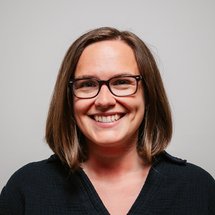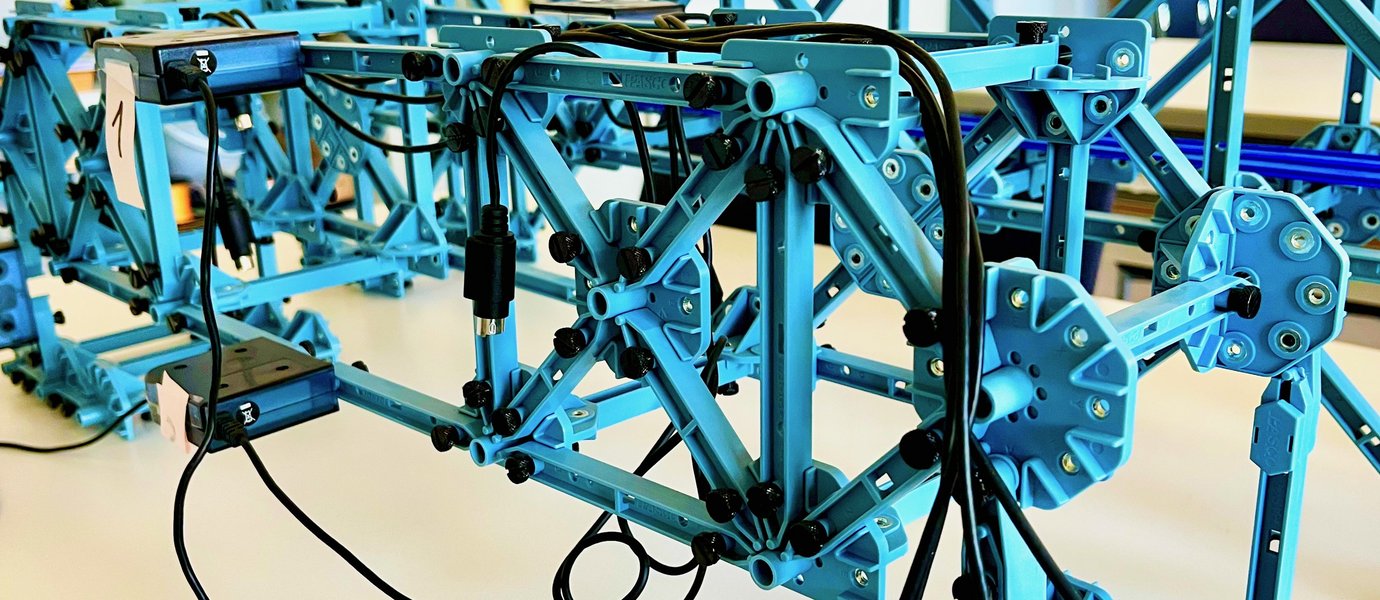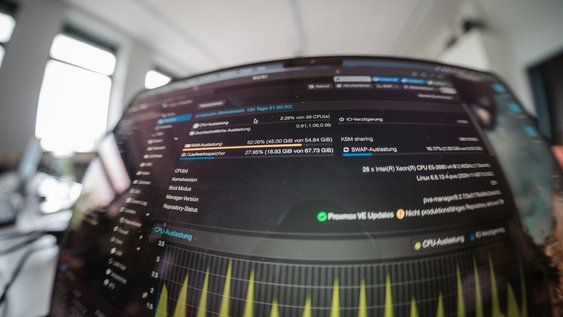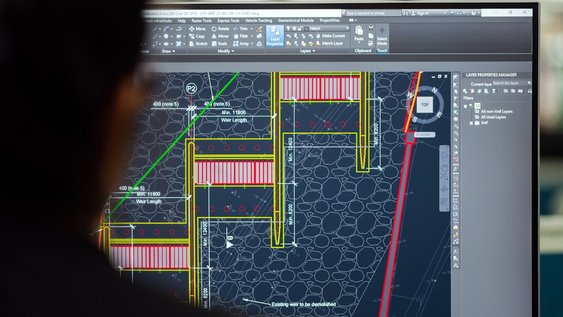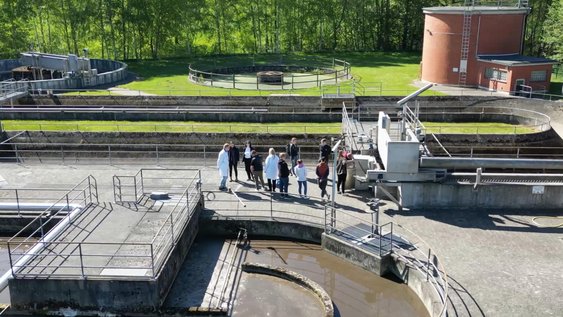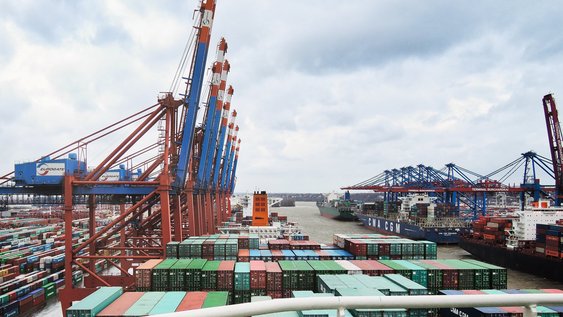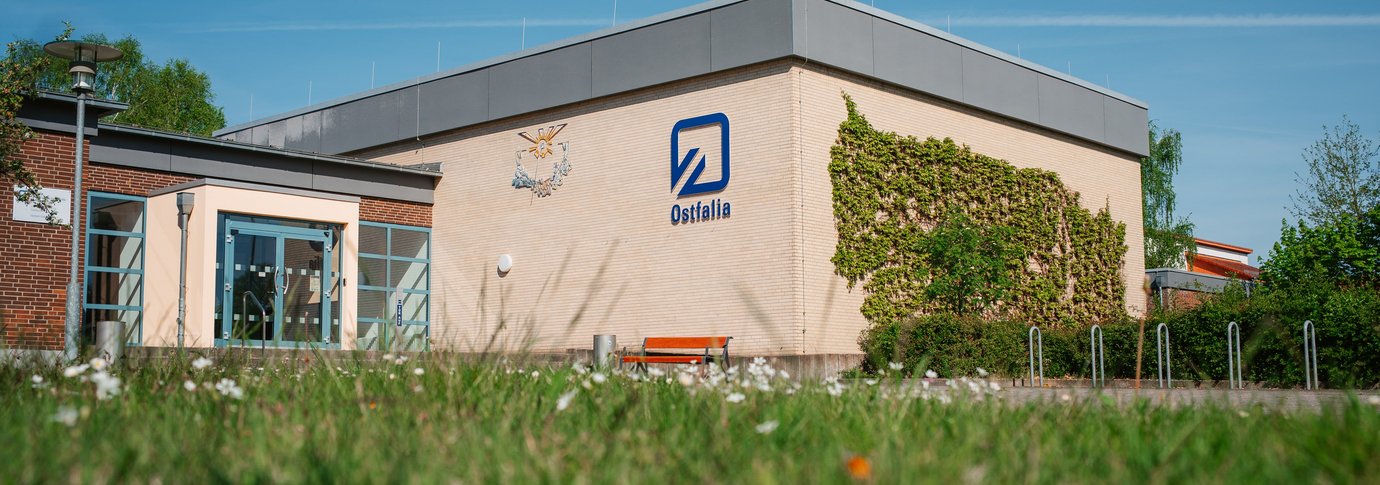Study programme with practical experience
A degree programme with in-depth practical experience is in demand.
In all degree programmes at the Faculty of Civil, Water and Soil Engineering, we enable you to study with practical experience (work-study programme). During your studies, you will work in a company and gain valuable professional experience. This allows you to deepen your knowledge of the programme in a practical way, secure your financial independence and increase your future prospects. Our timetable allows you to study four days a week at the university and work one day a week at the company during the lecture period.
Study programmes with practical experience
Studying with practical experience
Find out more about the programme for prospective students and companies now!
Inform nowAdvantages for prospective students
- In-depth practical relevance: study content is experienced and applied directly in practice
- Study financing: The contractual salary payments by the company provide security and also enable students to study who find it difficult to finance their studies.
- Network: Valuable contacts are made and networks built up during the degree programme
Advantages for companies
- Securing qualified junior staff and company loyalty through early recruiting
- Maintaining scientific expertise and state-of-the-art technology
- No familiarisation period during the transition from studies to working life
- No additional training fees for companies - as a state university of applied sciences, only the regular semester fees are charged to students
Division of the academic year
Bachelor's programme (7 semesters)
As a rule, students spend at least one day/week at the company during the lecture period and full-time during the lecture-free period. 52 weeks are distributed as follows:
- approx. 24 weeks of lectures
- approx. 4 weeks examination phase
- approx. 24 weeks at the company (incl. contractual holiday time and 1 day/week at the company during the lecture period)
Master's programme (3 semesters)
Semester structure as before. The Master's programme is suitable for part-time study.
Guide for prospective students
-
Search for an apprenticeship
You apply for a job advertised by a company and conclude a contract with the company for a degree course with practical experience.
-
Enrolment for the study place
You apply and enrol on time via the online application portal (summer semester: 15 January / winter semester: 15 July) for the contractually agreed course of study in the regular Bachelor's degree programmes in Applied Computer Science, Civil Engineering(NOT Civil Engineering in Practice) or Water and Soil Management (Environmental Engineering), or for the Master's degree programme Water Management in Global Change at the Ostfalia Campus Suderburg.
Practice partner
Applied computer science
-
Blue Sky Operations GmbH
Honenberg 27
21398 Neetze🌐 www.blue-sky-ops.de
-
fernao digital solutions GmbH (ehm. BVKontent)
Lüneburger Straße 39
29525 Uelzen
🌐 www.bvkontent.de
-
visoma GmbH
Schillerstraße 1
29525 Uelzen
🌐 www.visoma.de
Civil Engineering
-
BS|Energy Gruppe
Taubenstraße 7
38106 Braunschweig
🌐 www.bs-energy.de/karriere/wir-als-arbeitgeber/
-
Gerald Peters Rohrleitungsbau GmbH
Am Hang 1 - 3
29389 Bad Bodenteich
🌐 www.gpr-rohrbau.de
-
Hanstein Sand
Bispinger Straße 23
29646 Bispingen
🌐 www.hansteinsand.de
-
Harzwasserwerke GmbH
Bördestraße 23
31135 Hildesheim
Christin Eschmann - Personalabteilung
🌐 www.harzwasserwerke.de
-
Kreisverband für Wasserwirtschaft
Am Wall 2
31582 Nienburg
www.kvwasser-nienburg.de
-
Landeshauptstadt Kiel
Hopfenstraße 30
24103 Kiel
🌐 www.kiel.de/de/wirtschaft_arbeit/jobs_und_ausbildung/index.php
-
Landkreis Helmstedt
Personal und Organisation
Südertor 6
38350 Helmstedt
www.landkreis-helmstedt.de
-
NLWKN – Niedersächsischer Landesbetrieb für Wasserwirtschaft, Küsten- und Naturschutz
Am Sportplatz 23
26506 Norden
(Angehende) Studierende der Studiengänge Bauingenieurwesen (Schwerpunkt Wasser- und Tiefbau oder Konstruktiver Ingenieurbau) und Wasser- und Bodenmanagement (Umweltingenieurwesen) können sich für ein Stipendium des NLWKN bewerben.
www.nlwkn.niedersachsen.de/stipendien/stipendium-fur-studierende-der-bachelorstudiengange-bau-oder-umweltingenieurwesen-221514.html
-
Prüf-Nord
Lüneburger Straße 20
29456 Hitzacker
www.pruef-nord.de
-
Saevecke GmbH Bauunternehmen
Salzwedeler Str. 47
29525 Hansestadt Uelzen
🌐 www.saevecke-bau.de
-
Stadt Celle
Am Französischen Garten 1
29221 Celle
www.celle.de
-
Stadt Wolfsburg
Porschestraße 49
38440 Wolfsburgwww.wolfsburg.de
-
Stadtentwässerung Hildesheim AöR
Ansprechperson: Lysann Wolligand
🌐 www.sehi-hildesheim.de
-
Stadtwerke Sehnde GmbH
Nordstraße 19
31319 Sehnde
www.stadtwerke-sehnde.de
-
Viktor Kewitz GmbH
Neu Ripdorf 21b
29525 Uelzen
• Rohrleitungsbauer/in
• Kanalbauer/in
• Spezialtiefbauer/in
• Brunnenbauer/in
🌐 www.kewitz-uelzen.de
-
Willke rail construction GmbH & Co. KG
Hauptsraße 50
21357 Wittorf
🌐 www.willke.com/karriere/
Environmental Engineering
-
NLWKN – Niedersächsischer Landesbetrieb für Wasserwirtschaft, Küsten- und Naturschutz
Am Sportplatz 23
26506 Norden
(Angehende) Studierende der Studiengänge Bauingenieurwesen (Schwerpunkt Wasser- und Tiefbau oder Konstruktiver Ingenieurbau) und Wasser- und Bodenmanagement (Umweltingenieurwesen) können sich für ein Stipendium des NLWKN bewerben.
www.nlwkn.niedersachsen.de/stipendien/stipendium-fur-studierende-der-bachelorstudiengange-bau-oder-umweltingenieurwesen-221514.html
-
Technisches Betriebszentrum AöR
🌐 www.tbz-flensburg.de
Guide for companies
-
Post a job offer
You are advertising a vacancy for a course of study with practical involvement in the Bachelor's degree programmes Applied Computer Science, Civil Engineering(NOT Civil Engineeringwith practical involvement) and Water and Soil Management (Environmental Engineering) or in the Master's degree programme Water Management in Global Change at the Ostfalia Campus Suderburg.
-
Letter of Intent
After reaching a contractual agreement with an applicant, send us a signed Letter of Intent (LoI) (PDF, 78.30 KB) (opens in a new window), (not accessible) as confirmation of the cooperation between you as a company and us
Detailed guide for companies
Detailed guide for companies
Guide for companies to the degree programmes of the Faculty of Civil, Water and Soil Engineering with practical participation
(Status April 2023)
These guidelines provide information for companies on the procedure for degree programmes with practical participation at the Suderburg campus of Ostfalia University of Applied Sciences.
1. Preparation
The following points serve to prepare the cooperation and must be considered once.
- Discussions between the potential partner and the university about
- General conditions
- Procedure
- Number of places
- Frequency of the programme
- Confirmation of the cooperation via a letter of intent
- Appointment of a contact person at the cooperation partner
- Inclusion of the new cooperation partner in the university's list
2. Application
Selection and recruitment of students.
- Discussion between the partner and the university about the number of desired study places and any special features with the respective contact person
- Announcement of the places by the partner. Please use the following links in your job advertisements:
- Selection of candidates by the partner
- Prerequisite: University entrance qualification
- Questions to the respective contact person / Ostfalia enrolment office
- Recruitment of the selected candidates
- Recruitment date determined by the partner
- Contractual agreements (e.g. training contract) only between candidates and partner
- Notification to the university of the number of places allocated (to the respective contact person)
- Application and enrolment at Ostfalia
- Normal application for a study place by (new) employees of the partner for the desired degree programme via the university's website
- As the degree programmes are not admission-restricted, any application that meets the formal requirements will be accepted
- Application (if possible) by 15 January/July
- Enrolment in the degree programme
3. Study programme
Preparation / realisation of a semester, involvement of partners
- Information / discussion with the partner about special features of the coming semester
- Review of the previous semester
- Free weekday in the semester
- Start / end date of lectures and examinations
- Arrangement of the partner's participation in lecture content
- Opportunities & details for participation in lecture content are discussed directly with the lecturer
- Timely offers, by the partners, for topics to be worked on at the partner's (e.g. practical project, Bachelor's thesis, ...)
- Coordination between partners and Ostfalia for "special life situations" or illnesses, ....
- No recording of attendance at university events (lectures, tutorials, etc.)
- Information to partners on examination results or performance status only via students
- Annual discussions with all partners
- Review of the previous semesters
- Exchange of experiences
- Discussion of opportunities for improvement / further development
- Questions, problems, suggestions, ... to the respective contact person
4. Completion of the programme
- Successful completion
- Participation of the partners in the graduation ceremony
- Unsuccessful completion
- Reflection
- Termination of the student's employment contract with the cooperation partner does not lead to automatic termination of the degree programme
Contact Applied Computer Science
Prof. Dr. Albrecht Meißner
Building A, Room A 208, Suderburg
Professor für
• Mathematik
• Physik
• Informatik
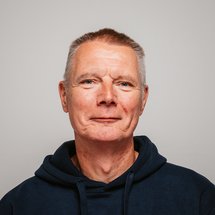
Contact Civil and Environmental Engineering
Prof. Dr.-Ing. Klaus Ruben Nelting
Prüfungsvorsitzender Masterstudiengang, Faculty of Civil and Environmental Engineering
Building C, Room C 9, Suderburg
Professor für
• Siedlungswasserwirtschaft (Abwasserbehandlung)
• Verfahrenstechnik
• Umwelttechnologie
• Biogas
• Wasserversorgung
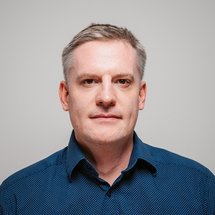
Contact for general questions
Kirsti Roggenbuck
Dekanatsassistenz
Studiengangskoordination, Faculty of Civil and Environmental Engineering
Building B, Room B 11, Suderburg
